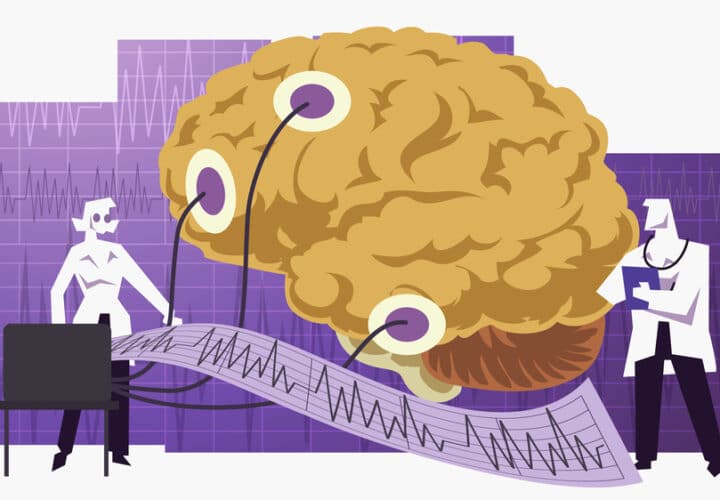November 17, 2017
While some scientists target beta-amyloid and tau tangles in the search for a cure against Alzheimer’s disease, others are turning to what sounds like science fiction: inserting an implant into the brain to boost memory.
In a small experiment on 20 subjects, scientists from the University of Southern California and Wake Forest School of Medicine have shown that inserting a brain implant improved short-term memory by 15 percent and working memory—the kind of memory that keeps track of things while they happen—by 25 percent.
To test the device, the team worked with epilepsy patients who had planned to get an electrode implanted in their brain as a treatment option. Twenty patients agreed to also implant the new electrode, which was first used to listen to the patients’ brains while they completed memory exercises. Then, the team used the implant to mimic the signals they recorded, sending tiny electrical impulses to the parts of the brain that control memory.
Stimulating the brain at these times increased memory performance significantly. When researchers stimulated the brain randomly, without using the cues they recorded from listening to how the individual’s brain worked, it made memory recall worse.
For Alzheimer’s and dementia patients, a brain implant could potentially help with forming new memories once the disease starts. It won’t help with “lost” memories that Alzheimer’s patients have trouble remembering from their past, said Dong Song, Ph.D., an author of the study, but it will potentially restore the ability to create long-term memories. “The goal of this prosthesis is to restore the function of the hippocampus, which is the formation of new long-term episodic memories. The lost memory won’t be regained since long-term memories are formed through the hippocampus but not stored in the hippocampus,” Song explained. “However, the patient’s ability of forming new long-term memories will be regained.”
The announcement of the study results comes the same week Bill Gates committed $100 million of his personal money to Alzheimer’s research. Gates gave $50 million of that to the Dementia Discovery Fund, an organization that funds approaches to the disease that don’t rely on the most popular theories of why Alzheimer’s develops, like amyloid and tau. In a blog post, he wrote, “I hope those approaches succeed, but we need to back scientists with different, less mainstream ideas in case they don’t.”
Further testing is necessary, but this approach could be the kind of breakthrough Alzheimer’s patients have been waiting for.



Recently diagnosed with early onset of Alzheimer’s.. very interested in this development. Maybe interested in being in a clinical trial